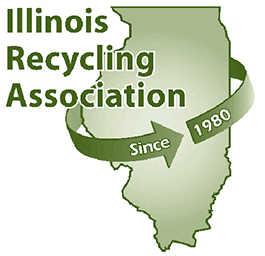
Ideas for “Revitalizing Plastics Recycling” will be the topic for a symposium hosted by the Illinois Recycling Association and the Illinois Sustainable Technology Center at the I Hotel and Conference Center on the University of Illinois campus from 8 a.m. to 2 p.m. Tuesday, Sept. 12.
Plastic production has risen steeply decade upon decade in the United States, primarily for use in packaging, and as a cheap, tough, lightweight substitute for glass and metal.
Ironically glass and metal are far more economical to recycle, so used plastic has come to blight the environment. The U.N. Environmental Program estimates that the U.S. recycled only nine percent of its post-consumer plastic in 2012. The program also reports that up to 43 percent of waste plastic finds its way into landfills. That leaves a lot of plastic unaccounted for.
Factors that make plastic easy or hard to recycle depends largely on logistics in the local recycling market, according to B.K. Sharma, senior research scientist at ISTC, a division of the Prairie Research Institute, and one of the presenters at the symposium.
Take polyethylene, for instance, which comes in two varieties – high density or low density, according to Sharma. If it is extruded (as in disposable drink bottles) it can usually be economically crushed, handled, and transported. If polyethylene products are molded they are typically too dense and/or brittle for a recycler to profitably manipulate. Expanded polystyrene (Styrofoam) is another example of a hard-to-recycle plastic. All volume and no weight, it is expensive to transport and few communities today offer opportunities to recycle it, Sharma explained.
Ken Santowski’s Chicago Logistic Service has been working to provide Styrofoam recycling to citizens of the greater Chicago area. He will speak at the symposium of his company’s success in dealing with that necessary evil.
The symposium will also deal with another scourge of plastic recycling – agricultural plastics. It wraps bales, covers forage, bags silage, covers silo bunkers, and makes farmers more productive in many ways. But once used it doesn’t all go easily into dumpsters and is too lightweight to make much economic sense to conventional recyclers. Tanner Smith, corporate development analyst for Delta Plastics, will discuss dealing with agricultural plastics at the symposium.
Sharma’s lab has approached the problem from a different angle. He has demonstrated how petroleum-derived polymers can be “reverse engineered” right back into gasoline, diesel, and even jet fuel. He has also shown how high-value “fractions” can be recovered from trash that might have ended up in landfills. He will be giving a demonstration at the symposium of the technology which can be used to convert plastics to oil.
The symposium will bring together experts on different aspects of the problem and share solutions on how to improve Illinois’ experience and record of plastic recycling. To register, and for more information about the symposium visit the Illinois Recycling Association’s website.



